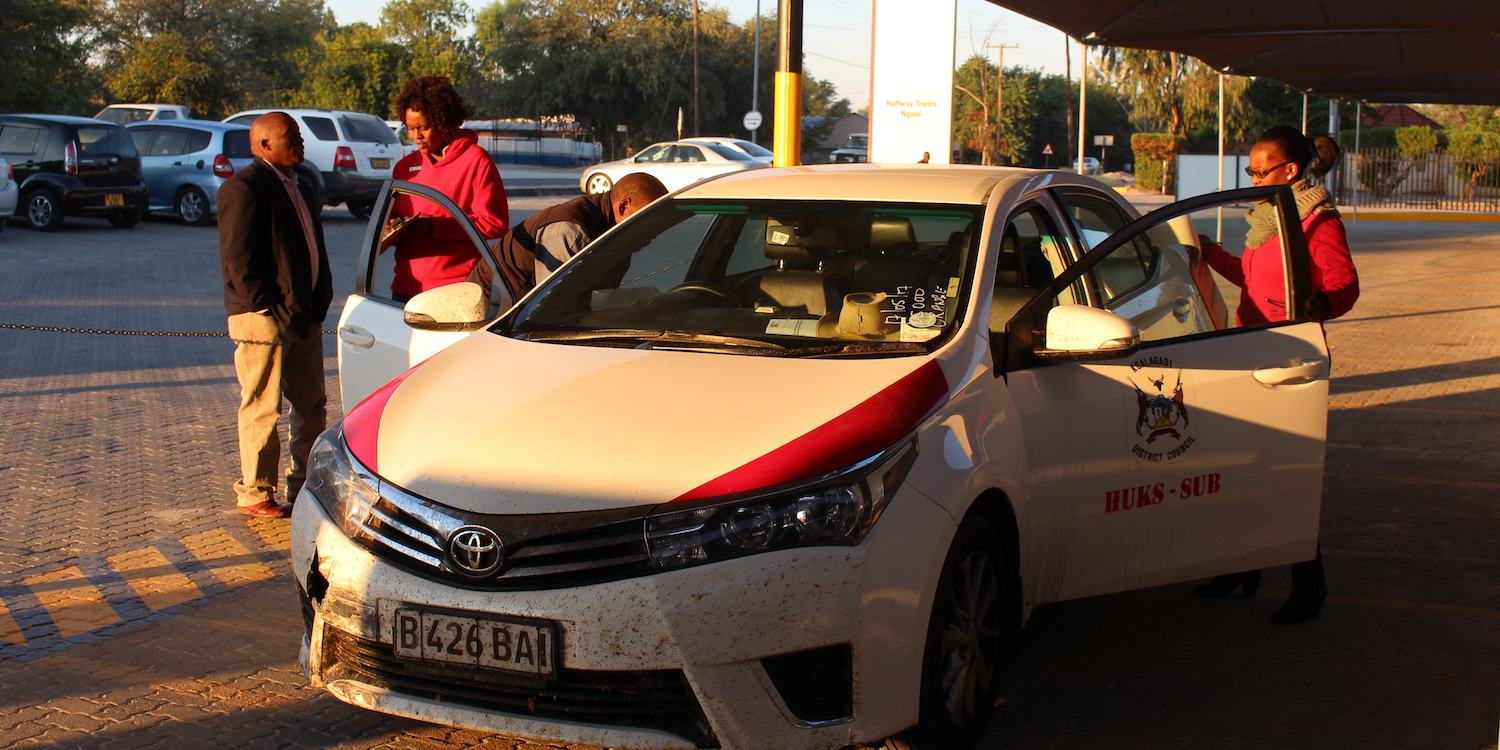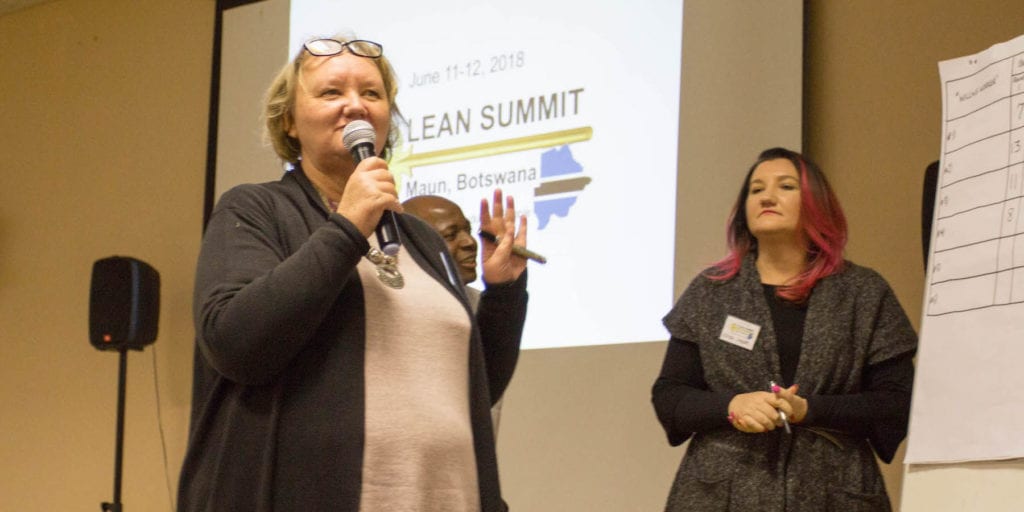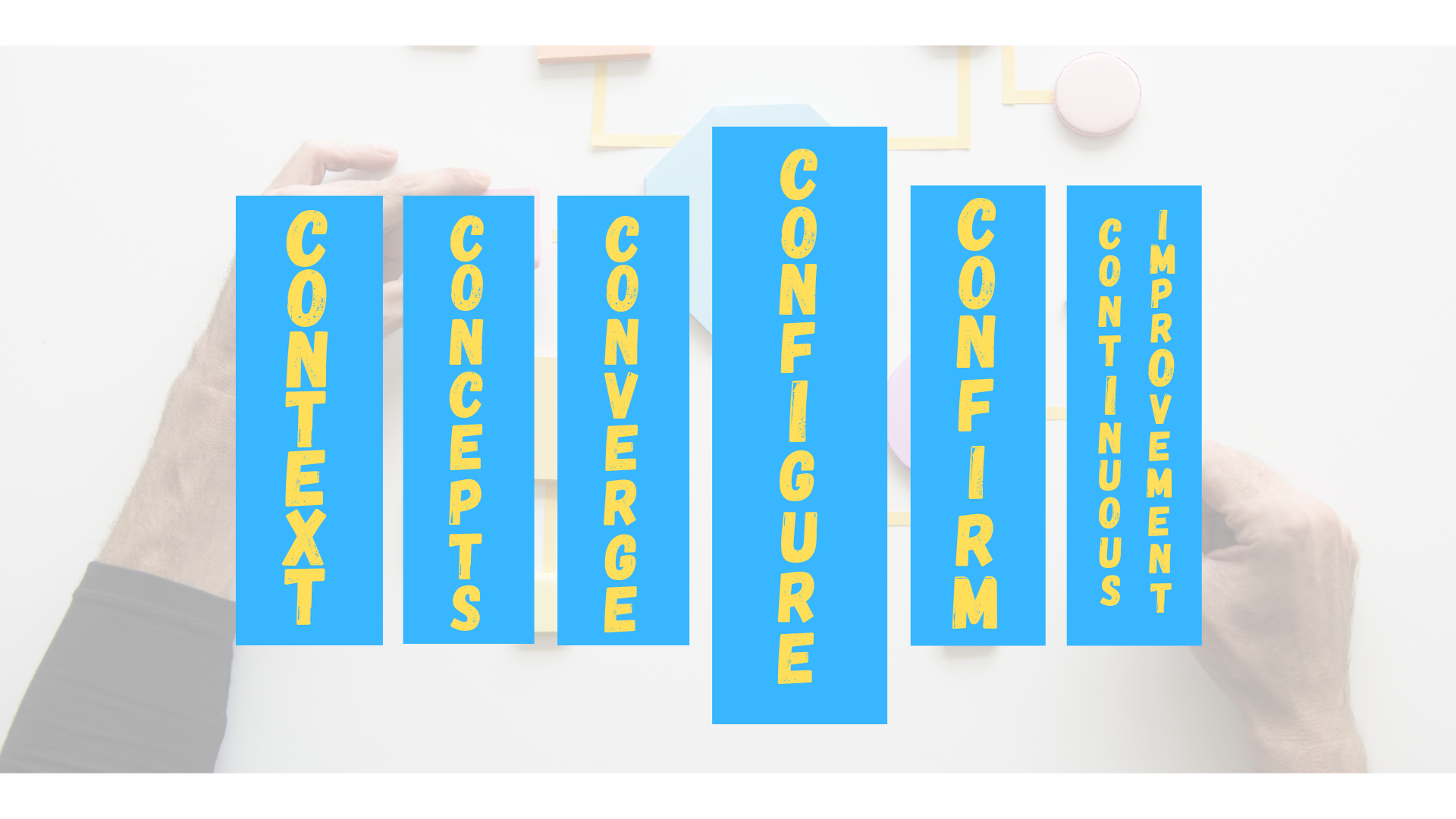
How I learned to treat people like individuals
FEATURE – In this intimate, moving account, the author shares her journey of personal transformation that caused her mindset and her attitude towards employees to dramatically change.
Words: Sharon Visser, CEO, Lean Institute Botswana
About three months into our lean transformation, natural resistance to change set in and I found myself in a push position that was exhausting. I became short-tempered and negative with the staff.
During a visit by our coach Terry O’Donoghue, he spoke to me about my negative attitude and how it was not helping me get to where I had to go. In fact, I was taking the whole team backwards. That was a sobering moment of self-reflection and I remember being really angry with Terry… for telling me the truth.
In his usual soft voice, he had told me to look at my own skills. And that, I did. I realized that all the HR books I had read were clearly written for a Western audience and I felt they were not particularly useful when dealing with a rural culture in the heart of Africa. Around that same time, Terry shared with the Halfway management team an article by Etsko Schuitema, who founded a business transformation consultancy that started out working in South African mines with people from all over Africa and developed the Care and Growth Leadership Model.
Reading that piece made me realize that all people have the same basic need for care and growth. Etsko Schuitema made me rethink my approach. At that stage in my life, I was looking out for myself and my own: with my husband unable to work due to emphysema, I was the sole breadwinner for my family unit. Yes, I had ambitions for Ngami, but a steady income was probably the main reason for me being there.
I then realized that I would have to find motivation in something bigger than money or I would never get to where I wanted to go. Money alone just doesn’t carry you over the bad days!
At that point, something happened that I call divine intervention (you can call it a shift in mindset if you like): King David came into my life.
It was census time in Botswana, and one day my daughter Erika – an ordained minister – and I were talking about the Old Testament passage telling the story of King David being punished for taking census. During our chat, I told Erika that I thought God’s response was more than a little harsh and that I did not understand its purpose. She told me she would discuss this with a Rabbi and come back to me with an answer.
The Rabbi said that God was not pleased with David’s motivation for taking the census and grouping his people (rather than for the act of taking census itself). He created people as individuals with different needs and aspirations, and for that reason the people of Israel were not just numbers for King David to “use” at his will.
This was a life-changing moment for me. I knew that whatever race or creed we are, we are all unique and need to be honored for our differences. I also knew that by honoring these differences, we allow people to become who they should be and help them to become happier and more productive. It was time I applied these beliefs to my management style.
I had a team of great people, many of them minimum-wage workers who came to work every day by “overcoming” hardship – living with the whole family (often eight-strong) in a one-room house, some without electricity and with a pit latrine in the backyard; having to collect buckets of water from standpipes to wash themselves and their clothes; having to coexist with AIDS, which has been decimating their communities for decades. Despite all this, they somehow managed to get to work with a clean and freshly-ironed uniform, and a smile on their face. Shame on me for feeling sorry for myself in my big house with air-conditioning.
So, what to do about it? Could we afford to improve the basic salary of staff? Yes, we could, and the owners actually insisted on it. Would this help? Yes, it would. Would it make a real difference to them or would this money just get absorbed into the family unit? Would it motivate them to accept and embrace the changes that had to be made in the business to pay for this? No, not really. Money would lift the burden for a time, but under those circumstances it typically gets sucked up and the earner often never feels the benefit.
If not money, then, what could we leverage to make a real difference in their lives and in our business? At that time, I was reading about poverty and why people get stuck in it and in the negative thinking and behaviors compounding its effects. I came to realize that poverty is caused by a state of hopelessness, a condition in which people “see no future” and that keeps them stuck in the same behaviors. It’s a vicious cycle.
I am not claiming to have found the solution to poverty around the world. Every situation is unique and calls for bespoke solutions. My personal revelation, however, led to positive outcomes at Ngami (though it did not work for everyone).
So, “Operation King David” began, and I wore the shield of David around my neck to make sure that I remembered to treat people as individuals. Whenever my thought process reverted back to its previous dynamic of looking people as part of a group, I would hold the shield in my hand, feel its sharp edges on my fingers and do my best to shift my thinking to talking to the individual. I have never once since that time said, “These service advisors have done this” or “Technicians are responsible for that.”
The first action under Operation King David was to bring every staff member into my office with our HR officer so that we could explain to them what we wanted to achieve with lean thinking and address each and every one of their problems and concerns. I wanted everyone at Ngami to have a voice.
With 98 staff, this took time, but we did learn a great deal about what fears and doubts our people had and what problems we had to help them with. What surprised me the most was that most of the problems were actually small and easy to fix. Veronica, our HR officer, spent much time after that solving small issues and bringing the bigger ones to me to assist her with.
Talking to everyone individually was a pivotal moment in our lean transformation, because it showed our people that we really just trying to solve problems and address injustices in the business. Even the more contentious employees started to contribute. We only had to let go of one technician, who just did not want to come along on the journey with us and resented his loss of power as a pack leader.
During this time, I developed a personal goal that I did not share with anyone but my daughter and Terry. If I could make coming to work better than staying at home, would that not change everything? Would it not make Ngami a place where staff want to do their best? Considering their circumstances at home, I thought, this should not be too hard!
In 2018, one of our people spoke at our lean summit here in Maun. Phillip (whom you can see in the video explaining how our green bay works) told the audience that he used to “hate” coming to work and avoided it whenever he could. I remember him well, always arriving as late as possible and trying to slip in unnoticed. He always had his hoody up and his earphones in, looking sulky and uncooperative. Since he has embraced lean thinking, he told the audience, coming to work is like a hobby - he “can’t wait to get there” and do his job.
Upon hearing him, I wept. I think that possibly only Terry and my daughter knew why.
THE AUTHOR

Read more


FEATURE – At the 2016 Olympics in Rio, the Japanese Men’s 4x100m relay team went from being the underdogs to winning a silver medal by apply lean problem solving.


SERIES – The authors discuss the fourth of six elements in their 6CON process development model – CONfigure – refining the selected process concept to maximize value-added activities.


ARTICLE - Organizing for learning is critical to sustaining your kaizen efforts and improving your company. Choose the right managers, make sure they can self-develop and develop others, and help lean to take root.


INTERVIEW – PL speaks to one of America's leading experts on the Toyota Production System about Toyota's unique approach to integrating product development with all other functions in the business.

